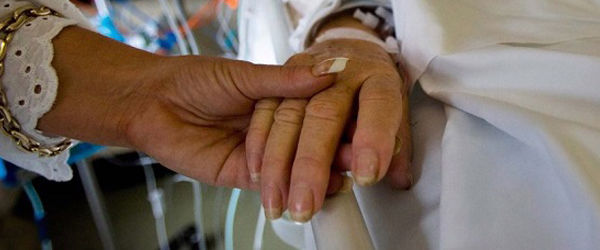We all feel some pain occasionally. But many people live every hour under a cloud of unrelenting pain. It changes their lives.A friend wrote me, "I am one of those people who has lived with pain every day since 1988. People can't see it. They know I hurt, but can't comprehend how bad it is.""As a survivor of pancreatic cancer," another friend wrote, "I live with pain each and every day. I find myself wondering what it would be like to live as the old, pre-pain me for just a couple of hours."Unlike a gaping wound, a lot of pain tends to be invisible to others. We can intuit the grief a woman feels after losing her mother, but we can't see it beyond a few tears and might not experience the deep hole in her life.After four days when I appeared to be functional but wasn't, I now look with fresh eyes at the people who cross my path. How many of them are burdened with pain? One in 10? One in four? It may be much higher, each of them feeling isolated in a pain that others don't see or comprehend.To deal with pain, people tend to seek medical care, but where else can we take our pain? Family, perhaps, but I wanted to separate myself from family. This pain made me feel different, not in sync.I used to think church was a place to take our pain. But as Sunday neared, I realized I couldn't take it to church. We don't have that kind of covenant with each other. Maybe we could, maybe we should, but we don't. So I stayed home.I wonder how much of mainline Protestant churches' severe decline can be explained by pain: a divorce rate that started to spike in the 1950s, lengthy military conflicts, white-collar layoffs, factory closings, the current jobless crisis, loss of homes, more and more people feeling useless and downwardly mobile.If churches haven't established down-to-earth ways to handle pain, no wonder people stay away. When our first question is anything other than, "Tell me how you hurt," when our concerns tend to be institutional and our desired mood cheerful and uplifting, the pained can feel unloved, unheard, even rejected.I know congregations don't intend that. In fact, they probably think themselves deeply committed to dealing with pain. But I sense we are more concerned with helping people "get over pain" and less concerned with helping them live boldly in relentless pain.We have made an idol of comfort and have made happiness our highest goal. I think we need to be focusing more on the courage to live without comfort and with sadness and agony.Tom Ehrich is a writer, church consultant and Episcopal priest based in New York. He is the author of "Just Wondering, Jesus" and founder of the Church Wellness Project. His website is www.morningwalkmedia.com.We are more concerned with helping people "get over pain" and less concerned with helping them live boldly in relentless pain. We have made an idol of comfort and have made happiness our highest goal.

